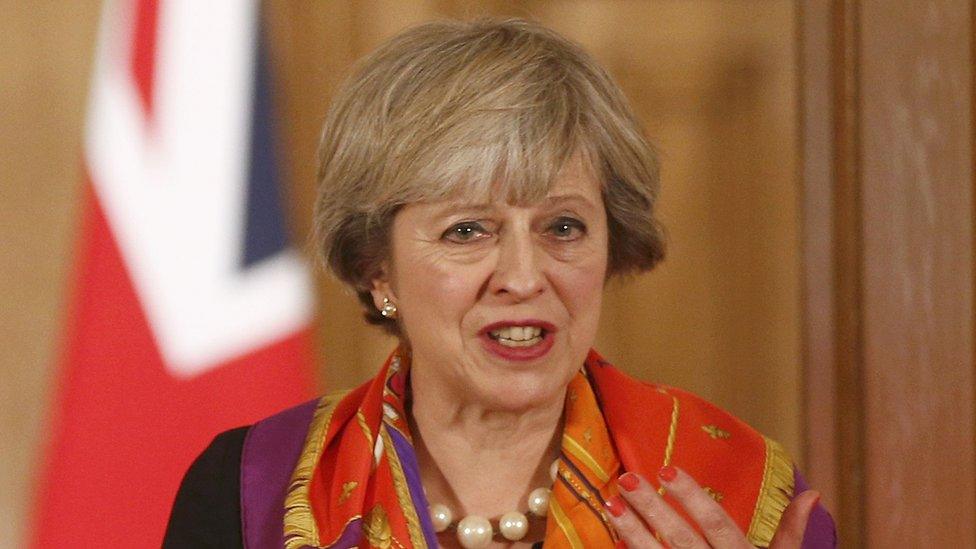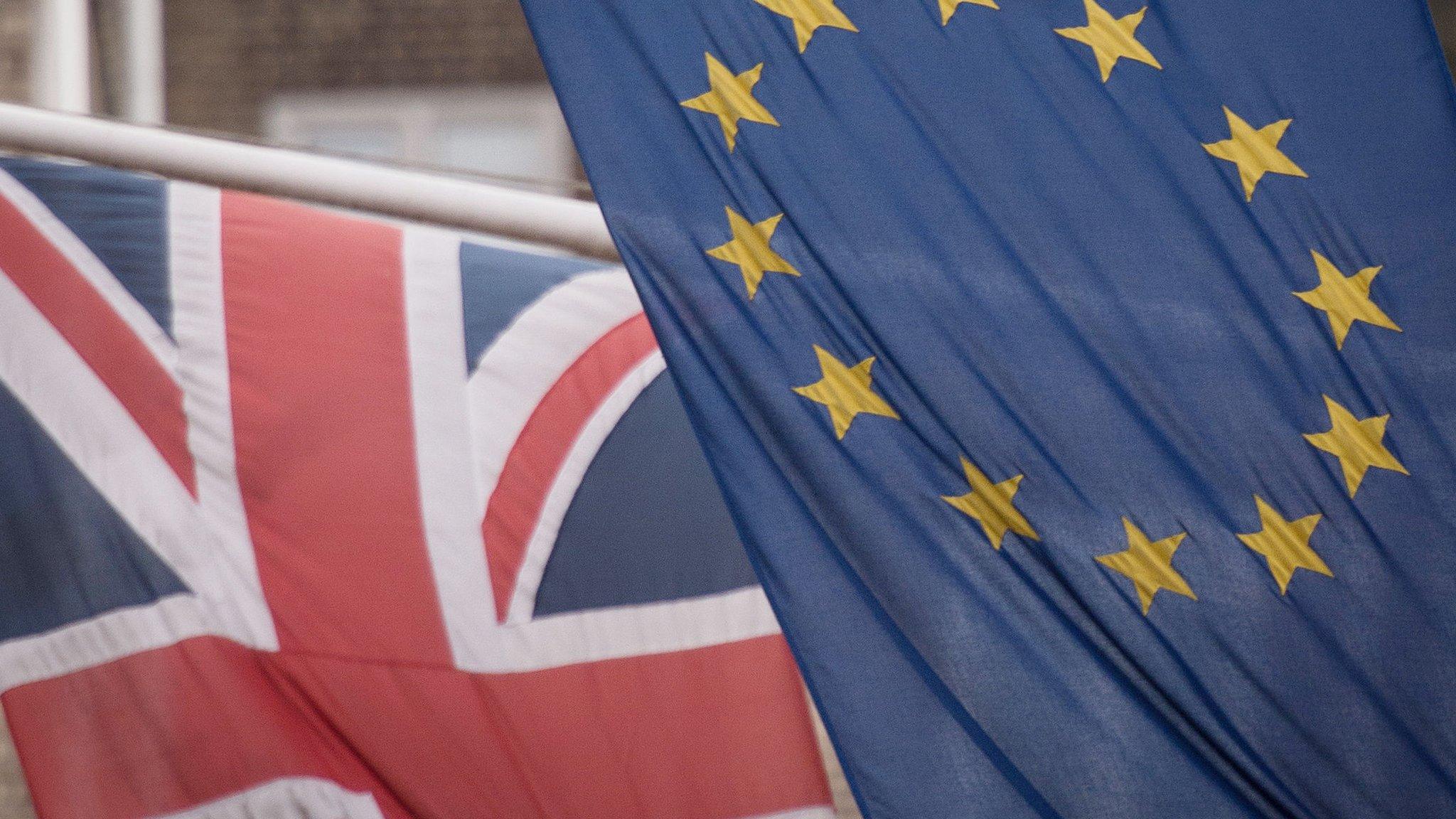Boris Johnson: UK should not pay 'large sums' for EU trade access
- Published
Boris Johnson: ''We will be able to take back control of the money that we currently give to Brussels"
The UK should not have to pay "large" sums to the EU to trade with it after Brexit, Boris Johnson has said.
The idea of the UK paying for tariff-free access to the EU's internal market has been mooted in recent days.
The foreign secretary told the BBC's Andrew Marr that the question of whether the UK would pay anything at all was "pure speculation", but if it did, any payments had to be "sensible".
Critics say leaving the single market would be an "act of self-harm".
Former Lib Dem leader Nick Clegg said remaining in the single market of 500 million customers was the "least economically disruptive form of Brexit", and, in return for this, the UK should be granted powers for an "emergency brake" on migration from the EU.
Negotiations on the terms of exit from the EU will not officially begin until the UK begins the Article 50 process - which Theresa May has said will happen by the end of March.
Pressed on suggestions by his cabinet colleague, the Brexit secretary David Davis, that the UK could pay for tariff-free access to the single market, Mr Johnson - who was a prominent Leave campaigner - said he was not "going to get into the minutiae" before negotiations began.

Analysis by Ellie Price, BBC political correspondent
He talked a lot in the EU referendum campaign about taking back control. Now Foreign Secretary Boris Johnson is keen to show he hasn't changed his tune.
But he seems to be singing from a slightly different song sheet to that his cabinet colleague, Brexit Secretary David Davis. On Thursday, Mr Davis suggested the government would consider paying the EU to maintain access to the single market.
Boris Johnson said no decision had been taken, and he seemed to favour more limited payments to the EU, including student exchanges and research programmes.
Labour say Britain's membership of the single market is crucial and will define the difference between a so-called hard or soft Brexit.

"That is something that obviously David Davis is considering. It doesn't mean that a decision has been taken," he said.
The EU, he insisted, wanted a "partnership" with the UK and that would involve a degree of mutual co-operation, for instance the UK continuing to partly funding the Erasmus education exchange scheme.
Andrew Marr asks Foreign Secretary Boris Johnson if his sense of humour gets lost in translation
But he hinted that this would not extend to actually paying to get access to the single market without any penalties or extra levies.
"I have given you an indication of the kind of payments that I think might be sensible," he told Andrew Marr.
"My own view is that I see no reason why those payments should be large. And I do see a big opportunity for us to spend the money we are getting back on other priorities."
The government has yet to set out its negotiating objectives in detail but ministers are coming under growing pressure to avoid a so-called "hard Brexit" - a term coined by Remain supporters to describe what they say would be the impact of the UK giving up its membership of the single market
Brexit supporters say continued membership of the single market is only possible if the UK continues to accept rules on the free movement of EU citizens and the jurisdiction of the European Court of Justice - which they say is unacceptable.
'Control back'
Mr Johnson said Brexit presented the chance to "take back control of our borders, to take back control of quite large sums of money, not to be run by the European Court - so not to have EU law in this country, and fourthly... to be able to do free trade deals".
The EU is under pressure in many quarters to drive a hard bargain with the UK but Mr Johnson dismissed suggestions the UK would be punished for voting out.
"It may get pretty hairy at times and there may be some difficult bits, but beneath it all there is a massive fondness for the UK and a desire to do the best possible deal."
And in a separate interview with ITV's Peston on Sunday, he said foreign students should not be included in the official migration statistics - a view that contradicts current government policy.
Labour's shadow Brexit Secretary Keir Starmer said the choice was between an "isolated, hard Brexit and a collaborative, co-operative Brexit" and while Labour would not stand in the way of triggering Article 50, he said it would oppose a deal which resulted in an "arms-length" relationship with the single market.
Mr Clegg, now Lib Dem EU spokesman, told the BBC's Sunday Politics he would oppose Brexit unless single market membership and a referendum on the final deal were guaranteed.
- Published4 December 2016

- Published2 December 2016
